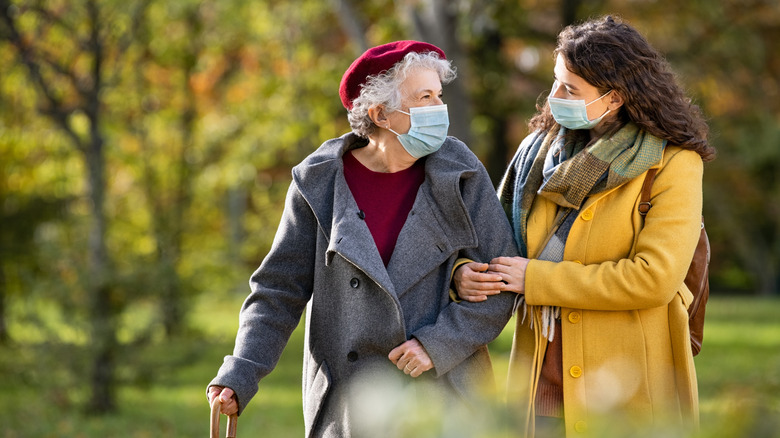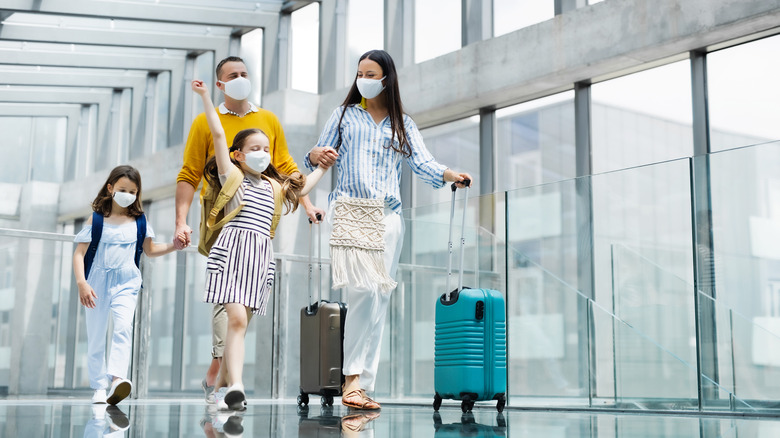The Surprising Number Of Americans Estimated To Be Immune To The Omicron Variant
The Omicron variant of the coronavirus, which was first discovered in Botswana and South Africa in November 2021, quickly became the dominant strain around the world last fall and winter (via New York Times). In December 2021, New York City saw twenty times more COVID cases than they had been recording just a few weeks prior to that date, and the majority of these were from the Omicron variant (via New York Times). While this new variant caused a surge in cases recently, the case rates have dropped significantly in recent weeks.
According to WebMD, about 73% of Americans are immune to the Omicron variant of the coronavirus. This is due mostly to people who are fully vaccinated against COVID and have received their booster shot, which has been shown to be effective against the Omicron variant. Some people have also received immunity from previous infections. This is positive news because, according to experts, it means that there is a good chance that hospitalizations and deaths will stay low even if there is another COVID surge in the future.
What will the future of COVID look like?
No one knows what COVID is going to look like a few months from now. However, experts are optimistic about the future (via CNBC). This is largely due to increasing vaccination rates, better treatment, and previous infections that create some immunity. While COVID will likely never go away, it may finally become a disease akin to the flu for many people that can be effectively prevented with a vaccine and treated without overwhelming hospitals. According to health philanthropist Bill Gates, "[COVID] won't be primary when deciding whether to work from the office or let your kids go to their soccer game or watch a movie in a theater."
COVID will likely have high and low seasons, similar to the flu or the common cold. New health strategies to prevent the virus, like wearing a mask on public transportation or when you feel sick, may also stick around. "We don't necessarily have to come up with new interventions [to prevent COVID]," said Dr. Timothy Brewer, a professor of epidemiology at the UCLA Fielding School of Public Health. "It's just that we've got to do a better job continuing to do the things we know that work."


